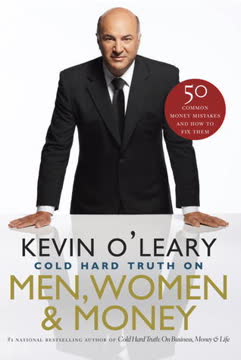Key Takeaways
1. Master the Core Truth: Spend Less, Save Well, Invest Often.
DON’T SPEND TOO MUCH. MOSTLY SAVE. ALWAYS INVEST.
Simple, hard truth. The secret to wealth isn't complex; it's about fundamental discipline. Most people do the opposite: invest poorly, overspend, and save nothing, often due to fear or ignorance about their finances. Improving your relationship with money is key to having more of it.
Lessons from Mom. My mother, Georgette, a natural with money despite lacking a business degree, taught me early lessons. Witnessing her financial stress during a custody battle instilled a deep need for security. She was careful, not cheap, buying quality items like a Chanel jacket that lasted decades and held value, teaching me to treat every purchase as a potential investment.
Build financial stability. My mother's quiet discipline – saving a steady amount monthly, investing only in dividend/yield-paying assets – built a significant nest egg over 40 years. Her portfolio consistently grew because she invested for income, not just appreciation. This showed me that anyone, with expertise and consistency, can grow their money.
2. Know Your Numbers: Calculate Your 90-Day Reality.
Ignorance costs you money, and it’s totally avoidable.
Face the truth. The first step to changing financial habits is a cold, hard look at your income and expenses. This isn't homework; it's essential vigilance, like businesses tracking numbers to avoid bankruptcy. Lack of diligence can lead to financial problems quickly.
Your 90-Day Number. Track all income (input) and every single dollar spent (output) over three months. This reveals spending and saving patterns. Subtract output from input to get your number – positive, slightly above zero, or negative.
- Positive: Congratulations, keep it up and maximize efficiency.
- Slightly above zero: You're getting by but close to jeopardy; build a cushion.
- Negative: You spend more than you make; disaster is already here.
Knowledge is power. Your 90-Day Number diagnoses your financial health and helps break the consumer trance. It shows your internal financial wiring and where improvement is needed. It's never too late to change, but it requires admitting your situation and taking action.
3. Debt is the Enemy: Eliminate It Ruthlessly, Especially Credit Card Debt.
Spending too much is a disease. And credit card debt is a cancer.
Credit card cancer. Not paying off your credit card balance is like letting the first cancer cell into your financial life. The compounding interest rates are monstrous; you can never earn enough consistently to offset 16%+ debt growth. Credit companies profit from those who can't pay balances, making credit easy to get to ensnare debtors.
Establish your credit. While debt is dangerous, having no credit rating is also problematic for future needs like mortgages. My wife faced this when she couldn't get a credit card after years using mine. Establish your own credit rating early, but understand the fine print on interest and fees.
- Use credit cards for convenience or rewards, not financing purchases.
- Pay off the full balance every month.
- Get a separate, low-limit card for online purchases to limit fraud damage.
Debt is stealing. Buying what you can't afford with borrowed money is effectively stealing from the bank, which is insured by the interest you pay. Every purchase on credit diminishes in value, but the cost grows. Avoid this trap; credit should be a tool, not a shortcut to temporary joy.
4. Stop Emotional Spending: Break the Consumer Trance and Revive Ghost Money.
Men and women spend too much because it feels good, temporarily.
Feelings and money don't mix. Spending often provides a temporary emotional boost, but it's a toxic combination. Avoid shopping when stressed, bored, lonely, or sad. Find other activities for satisfaction. The world is designed to take your money, often by triggering emotional purchases.
Break the trance. Ask yourself: "Will the interest I pay on this item outlive my interest in this item?" If yes, don't buy it. This discipline helps avoid purchases you'll regret and continue paying for long after the novelty wears off. It's like being contractually obligated to spend time with someone you no longer like.
Revive Ghost Money. Ghost Money is wasted money that should have been invested. Calculate the cost of small, unconscious purchases over time (coffee, magazines, cigarettes).
- $4/day coffee over 10 years at 4% interest = $18,400 lost.
- Higher spending over 20 years at 6% interest = $276,420 lost.
This money is gone, but stopping these habits now can revive future potential savings. Money knows when it's wasted; disrespecting it now leads to Money Karma later.
5. Invest Early and Wisely: Get Paid While You Wait and Diversify.
As you can see from this chart, over a 40-year period, more than 70 percent of the total returns on the stock market came from investments that yielded dividends, not from those that relied on capital appreciation.
Start when debt-free. Begin investing once consumer debt is paid off, regardless of age. Start with the amount you used to pay debt. The key is consistency and avoiding new debt to keep the investment flow uninterrupted.
Keep it simple. My mother's rules:
- Never invest in securities without dividends or interest.
- Save a consistent portion of income.
- Spend the interest, never the principal.
Dividend-paying companies are often better managed because CEOs prioritize generating cash flow for shareholders. Non-dividend stocks rely on uncertain capital appreciation.
Invest like a woman. Women often make better investors due to valuing security and taking fewer risks. Diversify your portfolio:
- Never more than 5% in any one stock.
- Never more than 20% in any one sector.
Match your investment ratio to your age: your bond percentage should roughly equal your age (e.g., 25% bonds at age 25, 50% bonds at age 50). Avoid greed, don't time the market, and only invest in what you understand.
6. Teach Kids the Cold Hard Truth: Value, Work, and the Secret 10.
Money for toys and games, anything you deem extra, should eventually come out of the child’s pocket.
Money isn't magic. Teach kids early that money is earned, not magically provided. The bank sees them as future income streams from birth. Teach them the difference between needs and wants, and scrutinize purchases for value, not just desire. My grandmother taught me this by calling my new toy "junk," linking money to value for the first time.
Time is money. Kids should understand the relationship between time and earning. Encourage part-time jobs as soon as they're old enough. This teaches them the true cost of goods they buy themselves. Working part-time is how my kids earned money for extras, rather than receiving an allowance tied to chores (which can lead to kids forgoing cash to skip tasks).
The Secret 10. Teach kids to save 10% of their income and keep it secret. This builds a personal stash for future security and freedom. Saving is hard when young because it lacks immediate tangible rewards, but compound interest is the reward.
- $2,000 invested at age 17 at 6% for 48 years = $32,000 at 65.
- $2,000/year for 48 years at 6% = $500,000+ at 65.
Saving consistently, like brushing teeth, becomes painless over time and yields massive rewards.
7. Money and Relationships: Talk Finances Early, Protect Yourself Always.
Remember, the most important financial decision you’ll ever make is who you’ll marry.
Money ruins relationships. Money problems are a leading cause of divorce, yet couples often avoid discussing finances. Start talking about money on the first date – who pays, how bills are split. This reveals financial habits and expectations early. As income levels become clear, the higher earner should generally pay more.
Cohabitation isn't "marriage-lite." Moving in together should be a financial decision, not just romantic. In many places, common-law relationships carry significant financial implications. Get a cohabitation agreement to protect assets, define financial responsibilities, and plan for potential breakups or death.
- A cohabitation agreement is a pre-prenup, costing $1k-$4k.
- It protects assets brought into the relationship and prevents absorbing partner's debt.
- It defines who pays for what and addresses inheritance if unmarried.
Get a prenup. Treat marriage like a small business with a high failure rate (50% in 5 years). A prenuptial agreement protects your assets, savings, and investments, especially if you own a business or bring significant wealth (or debt) into the marriage. It's not unromantic; it's prudent due diligence and reveals how your partner handles negotiations.
- Both parties need independent legal representation.
- Keep it simple: focus on large assets, debt, property, and estate.
- Avoid sunset clauses; love is treacherous at any time.
8. Higher Education is an Investment: Choose Wisely or Consider Alternatives.
Your education can be the best investment you’ll ever make, or the worst one.
Education as investment. Post-secondary education is an investment that should be carefully considered based on potential financial return. Many degrees don't lead to lucrative careers or the ability to repay significant debt. Graduating with $100k+ debt is a terrible start to adult life.
Plan backwards. Imagine the job you want after graduation and choose a degree that provides tangible skills (e.g., nursing, law, accounting). A liberal arts degree is nice but often doesn't guarantee a job. Consider an MBA or technical courses as a fallback. Universities are businesses that need to fill seats; don't fall for pipe dreams.
Alternatives to university. Not everyone needs or is suited for university. Consider the trades (plumbers, electricians, mechanics, chefs). These jobs are in demand, pay well, and often lead to self-employment.
- Tradespeople earn 6% higher average hourly wages than other professions.
- Many become entrepreneurs, hiring others.
- Skilled trades require less expensive schooling than many degrees.
- 70% of jobs require post-secondary education, but only 11% require a degree.
Live like a student. As long as you have student debt, maintain a student lifestyle. Work part-time during school and even after graduation to pay down debt quickly. Delay big purchases like cars or fancy apartments. Time is money; use your youth to work hard and get debt-free before lifestyle creep sets in.
9. Avoid Major Money Pits: Cars, Renovations, and Other Drains.
But cars also constitute the single biggest money pit many of us own, after our homes.
Cars are costly. After housing, cars are often the biggest money pit. Beyond the purchase price, fixed costs (insurance, registration, depreciation) and variable costs (gas, maintenance) add up significantly. An average sedan costs over $8,600/year to keep on the road.
- Avoid expensive extras; they add little resale value.
- Shop around for the best price and insurance rates.
- Consider living downtown to reduce car dependence or commute by electric bike.
- Buy used to avoid initial depreciation or lease for predictable costs.
Renovations aren't always investments. Canadians love renovating, but poorly planned projects can be money pits. While kitchens and bathrooms offer good returns, over-renovating or adding features that don't appeal to buyers (like pools) wastes money.
- Get multiple quotes and check references thoroughly.
- Do simple tasks like painting yourself.
- Apply for proper permits to avoid insurance or resale issues.
- Avoid borrowing money for renovations; if you need a loan, you can't afford it.
Other money pits:
- Pets: Cost over $20k-$30k+ in a lifetime for a dog (food, vet, etc.). Adopt from shelters or foster instead.
- Gym memberships: Often unused after a few months, costing ~$1k/year. Walk, run, or use free online resources.
- Vacation properties: Huge ongoing costs (taxes, upkeep, travel) beyond the purchase price.
- Swimming pools: Expensive to install ($25k-$50k) and maintain ($3k+/season).
- Expensive hobbies/diets: Hockey costs thousands per season; commercial diet plans are costly rackets.
10. Midlife Money Karma: Give Back and Avoid Costly Indulgences.
Here’s what I have learned as I head towards my own twilight years: nobody gets away with anything.
Karma in action. Financial actions in youth dictate financial comfort in later years. Blowing money early means working harder later. Good Money Karma means having enough and being able to give back. My mother's charity work exemplified this, showing purpose beyond wealth accumulation.
Give if you can afford it. Only donate money after all your debts are paid off. Set aside a percentage (e.g., 5% of after-tax income) for chosen charities. Giving has health benefits and reduces the burden on society.
Avoid midlife money pits. Midlife can bring new spending temptations (pets, expensive aging treatments).
- Pets: Dogs are expensive ($1200+/year after the first year, $20k-$30k+ lifetime). Consider fostering or volunteering at a shelter.
- Anti-aging treatments: Botox, fillers, and expensive creams are costly, ongoing commitments with uncertain results. Investing that money is a better return than injecting chemicals into your face.
Measure your karma. Re-evaluate your finances in midlife with a new 90-Day Number, especially after major events like kids leaving home or helping aging parents. Don't make rash spending decisions. Helping family financially is tough; offer guidance and explore alternatives before giving money you can't afford to lose. Avoid investing in friends' businesses unless you can afford to lose the entire investment and have done thorough due diligence.
11. Divorce is Financial Devastation: Protect Your Assets Before It's Too Late.
midlife divorce constitutes the single biggest erosion of wealth imaginable.
Divorce erodes wealth. Divorce, especially in midlife, significantly reduces financial standing. Women often see a larger drop in living standards than men. Keeping some money separate during marriage (your Secret 10) is crucial protection.
Second marriages are riskier. Divorce rates are higher for second (60%) and third (75%) marriages. Blended families add financial complexity. Late-in-life divorce is also rising, causing significant income drops for seniors.
Protect yourself. Given the high failure rate of marriages, protect your assets from the start. A prenuptial agreement is essential, not just for the wealthy. It protects assets brought into the marriage and shields you from a partner's debt. It's a crucial safeguard against potential financial ruin from a bitter divorce.
- Prenups reveal compatibility during negotiations.
- Hire independent lawyers for both parties.
- Keep the agreement simple, focusing on major assets and debts.
Minimize divorce costs. Divorce is expensive ($400+/hour for lawyers). A contested divorce can cost $100k+.
- Seek counselling and mediation before involving lawyers.
- Organize all financial documents (assets, income, debt, expenses).
- Be generous with child support; tables are modifiable upwards.
- Divide property and investments with expert financial guidance.
- Consider a lawyer with a "collaborative practice" to avoid court.
- Stay in counselling during proceedings; the well-being of children comes first.
Last updated:
FAQ
1. What is "Cold Hard Truth On Men, Women and Money" by Kevin O'Leary about?
- Personal finance journey: The book shares Kevin O’Leary’s personal journey with money, including lessons learned from his family, business experiences, and financial mistakes.
- Practical financial advice: It offers practical, no-nonsense advice on spending, saving, investing, and avoiding common money pitfalls at every stage of life.
- Focus on money relationships: O’Leary emphasizes understanding your relationship with money, arguing that improving this relationship is key to financial success.
- Life-stage guidance: The book covers financial strategies for youth, marriage, parenthood, midlife, and retirement, making it a comprehensive guide for all ages.
2. Why should I read "Cold Hard Truth On Men, Women and Money" by Kevin O'Leary?
- Real-world experience: O’Leary draws on his own successes and failures, making the advice relatable and grounded in reality.
- Actionable steps: The book provides clear, actionable steps and checklists, such as the 90-Day Number and the Secret 10, to help readers take control of their finances.
- Covers emotional aspects: It addresses the emotional side of money, including how relationships, family, and upbringing affect financial decisions.
- Broad audience: Whether you’re just starting out, raising a family, or planning for retirement, the book offers relevant advice for every stage.
3. What are the key takeaways from "Cold Hard Truth On Men, Women and Money"?
- Spend less, save well, invest often: O’Leary’s core mantra is to avoid overspending, prioritize saving, and always invest for the future.
- Know your numbers: Understanding your income, expenses, and net worth (the 90-Day Number) is essential for financial health.
- Avoid debt: Debt, especially consumer and credit card debt, is described as a financial cancer to be eliminated as quickly as possible.
- Separate emotions from money: Emotional spending and lending to family/friends are major sources of financial trouble; discipline and boundaries are crucial.
4. What is Kevin O'Leary's "90-Day Number" method and how does it work?
- Track 90 days of finances: Add up all income and all expenses over a 90-day period to get a clear picture of your financial flow.
- Calculate the difference: Subtract total expenses from total income to determine if you’re operating at a surplus or deficit.
- Identify patterns: This method helps reveal spending habits, hidden costs, and areas where you can cut back or save more.
- Foundation for change: Knowing your 90-Day Number is the first step to making informed decisions and setting realistic financial goals.
5. What is the "Secret 10" concept in "Cold Hard Truth On Men, Women and Money"?
- Save 10% of income: O’Leary advises setting aside 10% of your income as a personal, untouchable savings fund.
- Keep it secret: This fund should be kept private (except from a future spouse during prenuptial discussions) to protect it from being spent or borrowed.
- Long-term security: The Secret 10 acts as a financial safety net for emergencies, opportunities, or retirement.
- Builds discipline: Regularly saving this amount instills lifelong financial discipline and independence.
6. How does Kevin O'Leary recommend approaching spending and saving in "Cold Hard Truth On Men, Women and Money"?
- Value over impulse: Always consider the long-term value and potential resale of purchases, not just immediate gratification.
- Live below your means: O’Leary suggests living just below what you can afford to create a consistent savings buffer.
- Identify "Ghost Money": Track and eliminate small, habitual expenses (like coffee, magazines, cigarettes) that add up to significant lost wealth over time.
- Emergency fund priority: Before investing, ensure you have an emergency fund (Catastrophe Cash Fund) to cover unexpected expenses.
7. What are Kevin O'Leary's investment rules in "Cold Hard Truth On Men, Women and Money"?
- Diversify investments: Never put more than 5% in any one stock or 20% in any one sector to minimize risk.
- Insist on dividends: Only invest in stocks or bonds that pay dividends or interest, ensuring you get paid while you wait.
- Understand your investments: Don’t invest in anything you don’t fully understand, including the tax implications.
- Adjust with age: Shift your portfolio towards more bonds as you age, matching your bond percentage to your age for stability.
8. How does "Cold Hard Truth On Men, Women and Money" address debt and credit card use?
- Debt is dangerous: O’Leary likens credit card debt to cancer, warning that compounding interest can quickly spiral out of control.
- Pay off balances monthly: Always pay off credit cards in full each month; never carry a balance.
- Establish your own credit: Especially for women, it’s vital to have credit in your own name to maintain financial independence.
- Avoid emotional spending: Recognize and break the cycle of using spending to cope with emotions or stress.
9. What advice does Kevin O'Leary give about marriage, relationships, and money in "Cold Hard Truth On Men, Women and Money"?
- Talk money early: Discuss finances, debts, and financial habits with your partner before moving in or marrying.
- Prenups for everyone: O’Leary strongly advocates for prenuptial agreements, regardless of wealth, to protect both parties.
- Keep some money separate: Maintain individual savings (like the Secret 10) even after marriage for personal security.
- Delay big expenses: Prioritize paying off debt before spending on weddings, homes, or other major purchases.
10. How does "Cold Hard Truth On Men, Women and Money" approach home ownership and mortgages?
- Don’t rush to buy: Only buy a home when you can put down at least 20% and afford all associated costs without becoming “house poor.”
- Go to war on your mortgage: Pay down your mortgage aggressively, using windfalls and making biweekly payments to save on interest.
- Consider renting: Renting can be a smarter financial choice for many, especially if it allows you to invest and stay mobile.
- Renovate wisely: Only renovate if it adds real value; avoid overcapitalizing or taking on debt for unnecessary upgrades.
11. What are some common "money pits" and financial traps highlighted in "Cold Hard Truth On Men, Women and Money"?
- Cars and luxury goods: Cars, especially new or luxury models, are major money pits due to depreciation and ongoing costs.
- Jewellery and bling: Expensive jewellery is rarely a good investment and often loses value.
- Vacation properties and pools: Second homes and pools come with high ongoing costs and rarely provide a good return.
- Gym memberships and diet plans: These often go unused and can drain money without delivering promised results.
12. What are the best quotes from "Cold Hard Truth On Men, Women and Money" by Kevin O'Leary and what do they mean?
- “Don’t spend too much. Mostly save. Always invest.” – This is O’Leary’s core financial philosophy, emphasizing discipline and long-term thinking.
- “Money and emotions don’t mix.” – He warns that emotional decisions often lead to financial mistakes, especially in relationships and family matters.
- “If you don’t know where your money is going, you’re already in trouble.” – Stresses the importance of tracking and understanding your finances.
- “Beans now, steak later.” – Advocates for short-term sacrifice and frugality to achieve long-term wealth and comfort.
- “The point of having more money isn’t the money itself, but the freedom that money can buy you.” – Reminds readers that financial security is about freedom and choices, not just accumulating wealth.
Review Summary
The Cold Hard Truth on Men, Women and Money received mixed reviews. Many praised O'Leary's blunt, straightforward financial advice, finding it practical and eye-opening. Common themes included saving, investing, and avoiding debt. Some readers appreciated the personal anecdotes and humor, while others found the advice obvious or too frugal. The book was recommended for beginners in personal finance, though experienced readers found less new information. O'Leary's stance on certain topics, like prenups and pet ownership, was controversial for some reviewers.
Similar Books

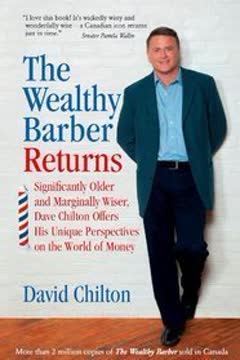
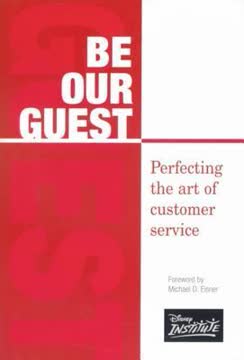
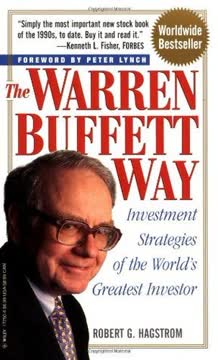
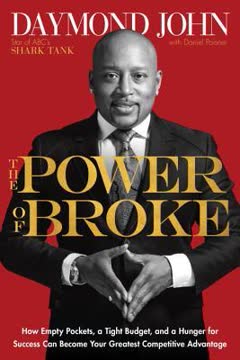
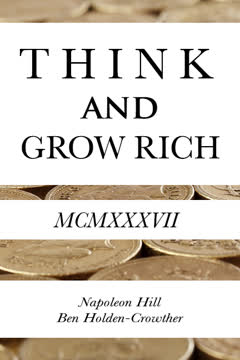
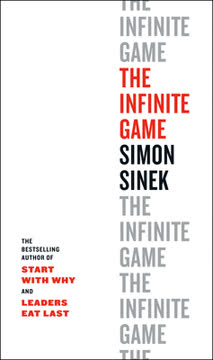

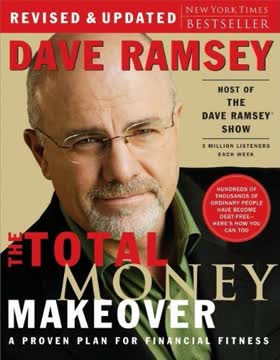
Download PDF
Download EPUB
.epub digital book format is ideal for reading ebooks on phones, tablets, and e-readers.
